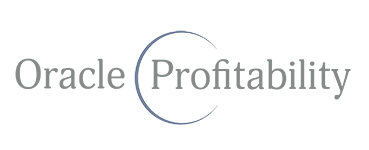Boost Your Business Efficiency: Connect Your Accounting System with Third-Party Apps
Running your business without a connected accounting system is like navigating a maze blindfolded – you're bound to hit some dead ends and take wrong turns. Without a seamless flow of data between your software platforms, you're left juggling multiple tasks, manually inputting data, and constantly playing catch-up. This disjointed approach not only wastes your valuable time and resources but also opens the door to errors and inconsistencies in your financial records. From missed invoices to duplicate entries, the profit pitfalls are endless. Today, we'll dive into the nitty-gritty of building a connected accounting system using third-party apps.
Using Third-Party Apps to Connect Your Accounting System
We understand that relying solely on software like QuickBooks may not cover all of your complex business needs. You might need to use some industry-specific software. For instance, a locksmith business might utilize a separate invoicing system with work order capabilities, which is totally normal. But do yourself a favor and check to see if there are third party software specific to your industry that integrate with QuickBooks. In our opinion, QuickBooks serves as the central hub for your financial data, but it can’t do its job if you don’t connect it to all of your financial information.
Each business has unique needs, and the beauty of third-party apps lies in their ability to cater to these specific requirements. Whether it's automating accounts payable with tools like Bill.com or optimizing payroll processes with dedicated software, businesses can tailor solutions to enhance efficiency and accuracy.
How to Check if Your Software Has an Integration with QuickBooks
Check if your software has an integration with QuickBooks is a crucial step in building a connected accounting system. Look for reviews and testimonials from other businesses to gauge the reliability and effectiveness of the integration. Keep in mind that while some integrations may require additional setup or configuration, the benefits of seamless data flow between your systems far outweigh the initial investment of time and resources.
Building a connected accounting system is an iterative process. As technology evolves and business needs change, it's crucial to remain adaptable and continuously evaluate the effectiveness of existing systems. By embracing a mindset of continuous improvement, businesses can stay ahead of the curve and drive long-term success.
Transitioning to a Connected Accounting System
Transitioning to a connected accounting system may seem daunting, you may fear that you’ll lose data or get frustrated when learning a new software. We know that change is hard but necessary. Our experienced consultants at Oracle Profitability can support you in navigating these challenges and unlocking the full potential of integrated software solutions.
In today's digital age, leveraging the power of third-party apps is no longer optional—it's essential for maximizing efficiency and profitability. By connecting your accounting system with specialized software solutions, you can unlock new opportunities for growth, streamline financial processes, and gain invaluable insights into your business operations. Ready to take your accounting system to the next level? Schedule a free consultation with our team today to embark on your journey to greater profitability!


